There are certain melodies that are woven so deeply into the fabric of history that they become more than just songs; they are echoes of a nation’s soul. They capture the hopes, fears, and profound emotions of a specific moment in time, yet continue to resonate with universal power for generations. The rousing, hopeful tune that accompanies the phrase when johnny comes marching home is a perfect example of such an anthem. It is a song born from the crucible of the American Civil War, yet its message of longing for the safe return of loved ones from conflict is as timeless as war itself.
This guide is a deep and comprehensive exploration of this iconic American folk song. We will journey back to its origins, unpack the vivid imagery of its lyrics, and trace its enduring legacy through more than a century and a half of history. This is not just a simple recounting of a historical artifact; it is an analysis of why the very idea of when johnny comes marching home continues to stir something deep within us. By the end of this article, you will have a rich and nuanced understanding of the story, the meaning, and the enduring power of this unforgettable song about when johnny comes marching home.
The Birth of an Anthem: A Civil War Origin
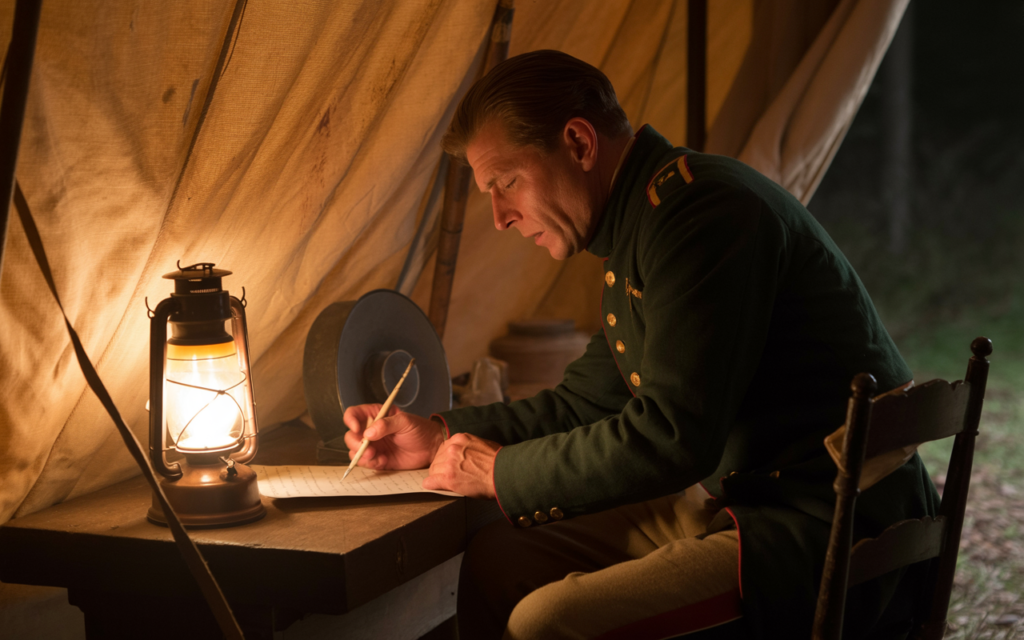
To truly understand the song, we must first transport ourselves to the heart of the American Civil War, a period of immense national trauma and personal loss. It was during this time, in 1863, that an Irish-American bandmaster named Patrick Sarsfield Gilmore penned the lyrics that would become an immortal part of the American songbook. Gilmore, a prominent figure in American music who was considered by John Philip Sousa to be the “Father of the American Band,” was serving in the Union Army when he wrote the song.
Interestingly, Gilmore chose to publish the song under the pseudonym “Louis Lambert.” The song was an immediate success, capturing the profound and widespread yearning for an end to the brutal conflict. The “Johnny” of the title was not a specific person, but an everyman soldier—a son, a brother, a husband, a sweetheart. He represented every soldier on both sides of the conflict whose family was anxiously awaiting their return. The hope for the day when johnny comes marching home was a sentiment that knew no uniform, blue or gray.
The story behind the song’s creation is said to be a personal one. Gilmore reportedly wrote the lyrics for his sister Annie, who was praying for the safe return of her fiancé, a Union Light Artillery Captain named John O’Rourke. While this adds a layer of personal poignancy, the song’s power has always been in its universal appeal. The dream of the day when johnny comes marching home was a dream shared by millions.
When Johnny Comes Marching Home: A Lyrical Breakdown
The genius of the song lies in its simple, evocative lyrics, which paint a vivid picture of a joyous homecoming celebration. The words are structured to build a sense of communal excitement and relief, verse by verse. Let’s explore the narrative journey of the lyrics to understand why the thought of when johnny comes marching home brought such comfort.
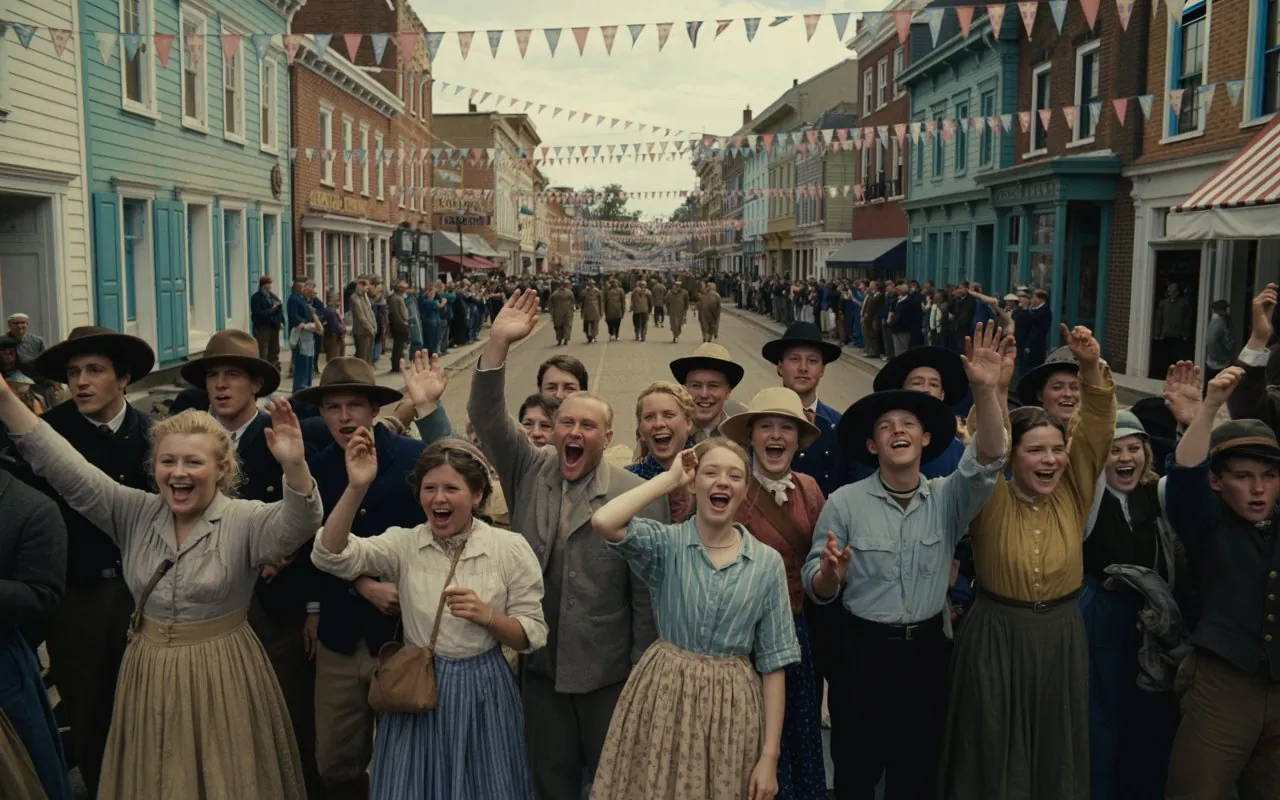
Verse 1: The Hearty Welcome
The song opens with a declaration of celebration, setting the stage for the entire community’s involvement:
“When Johnny comes marching home again, Hurrah, hurrah!
We’ll give him a hearty welcome then, Hurrah, hurrah!
The men will cheer, the boys will shout, The ladies, they will all turn out,
And we’ll all feel gay, When Johnny comes marching home.”
This first verse establishes the central theme: the return of the soldier is not a private family affair, but a major public event. The entire community—men, women, and children—is united in this celebration. The repeated, enthusiastic “Hurrah, hurrah!” acts as a powerful, unifying chant. The promise that “we’ll all feel gay” (in the 19th-century sense of “joyful” or “happy”) underscores the collective relief that will wash over the town when johnny comes marching home. This verse paints a picture of pure, unadulterated joy for the moment when johnny comes marching home.
Verse 2: The Sound of Joy
The second verse expands the celebration, incorporating the sounds and sights of the village:
“The old church bell will peal with joy, Hurrah, hurrah!
To welcome home our darling boy, Hurrah, hurrah!
The village lads and lassies say, With roses, they will strew the way,
And we’ll all feel gay, When Johnny comes marching home.”
Here, the celebration takes on a more formal and almost sacred tone. The peeling of the church bell elevates the soldier’s return to a moment of profound significance. The image of the “village lads and lassies” strewing the way with roses is a classic symbol of honoring a hero. It reinforces the idea that the entire town is invested in the moment when johnny comes marching home. The actions described show the depth of feeling associated with when johnny comes marching home.
Verse 3: The Hero’s Reward
The third verse focuses on the specific honors that will be bestowed upon the returning soldier:
“Get ready for the jubilee, Hurrah, hurrah!
We’ll give the hero three times three, Hurrah, hurrah!
The laurel wreath is ready now, To place upon his loyal brow,
And we’ll all feel gay, When Johnny comes marching home.”
The call to “get ready for the Jubilee” signifies a festival of grand proportions. The most potent symbol in this verse is the “laurel wreath.” In ancient Greece and Rome, a laurel wreath was the highest honor awarded to a victorious hero. By preparing a laurel wreath for Johnny, the community is elevating him to the status of a classical hero, honoring his loyalty and service. This verse emphasizes the respect and admiration that awaits the soldier when johnny comes marching home. It is a powerful image of the hero’s welcome that was dreamed of for the day when johnny comes marching home.
Verse 4: A Personal and Communal Blessing
The final verse shifts the focus from public celebration to the more personal gifts of love and friendship:
“Let love and friendship on that day, Hurrah, hurrah!
Their choicest treasures then display, Hurrah, hurrah!
And let each one perform some part, To fill with joy the warrior’s heart,
And we’ll all feel gay, When Johnny comes marching home.”
This concluding verse brings the celebration to a beautiful, intimate conclusion. It calls on everyone to “perform some part” in filling the returning soldier’s heart with joy. It suggests that the greatest treasures are not material honors, but the simple, profound gifts of love and friendship. This final sentiment perfectly encapsulates the emotional core of the song and the deep, human need for connection that is finally fulfilled when johnny comes marching home. The true meaning of when johnny comes marching home is found in this final, heartfelt blessing. The thought of this day is what sustained many during the war, the simple hope of when johnny comes marching home.
The Music and the Message: A Tale of Two Tunes
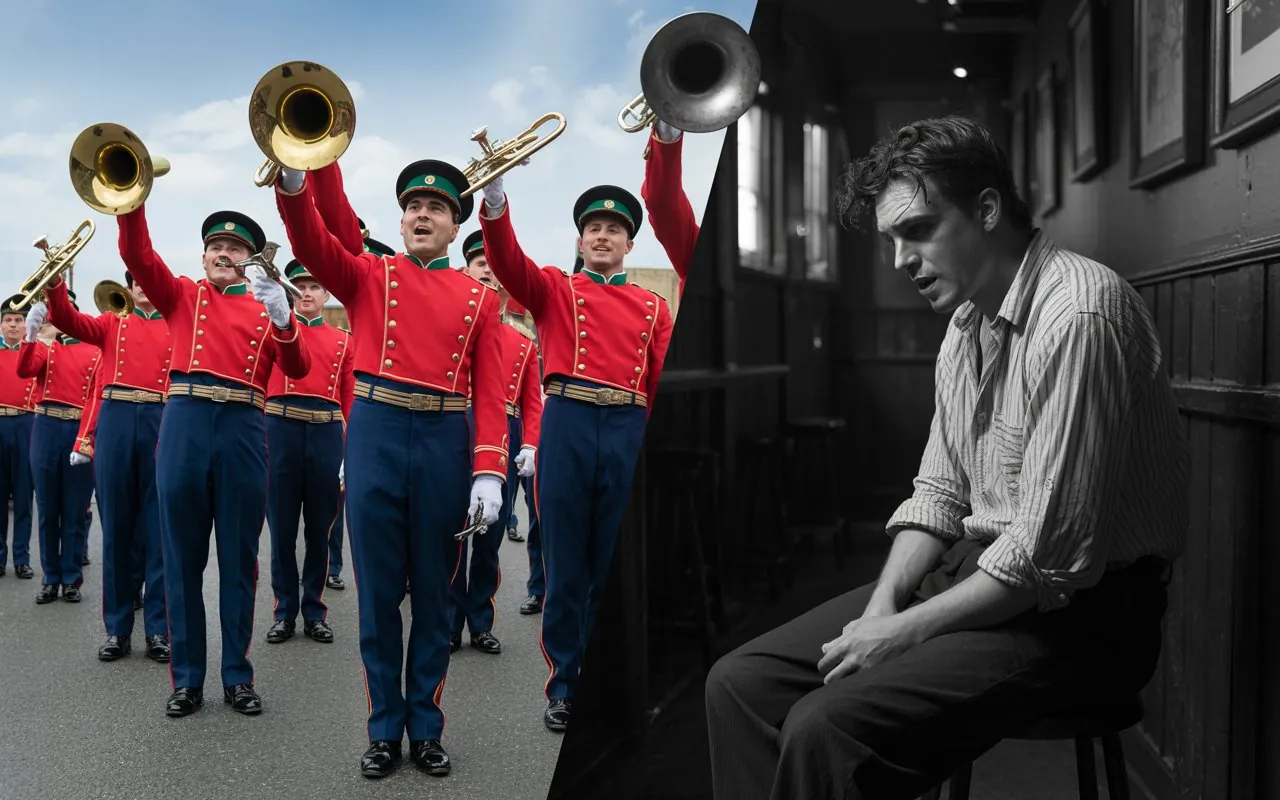
While Gilmore penned the optimistic lyrics, he acknowledged that the melody itself was not original. He described it as a “musical waif” that he heard someone humming and adapted for his purpose. The tune is what gives the song its rousing, march-like quality.
However, the history of the melody is complex and adds a layer of fascinating, darker context. The tune bears a striking resemblance to a much older Irish anti-war folk song called “Johnny I Hardly Knew Ye.”. In stark contrast to the triumphant tone of Gilmore’s song, “Johnny I Hardly Knew Ye” is a tragic lament about a soldier horrifically maimed in war.
The juxtaposition of these two songs is powerful. Gilmore essentially took a melody associated with the tragic consequences of war and transformed it into an anthem of hopeful return. He stripped away the darkness and replaced it with pure, unadulterated optimism. In the midst of a brutal war where hundreds of thousands of “Johnnys” would never come home, the song offered a desperately needed fantasy. It allowed people to focus on the idealized dream of a perfect homecoming. This contrast makes the story of when johnny comes marching home even more poignant. The optimistic vision of when johnny comes marching home was a necessary balm for a wounded nation.
When Johnny Comes Marching Home: An Anthem for All
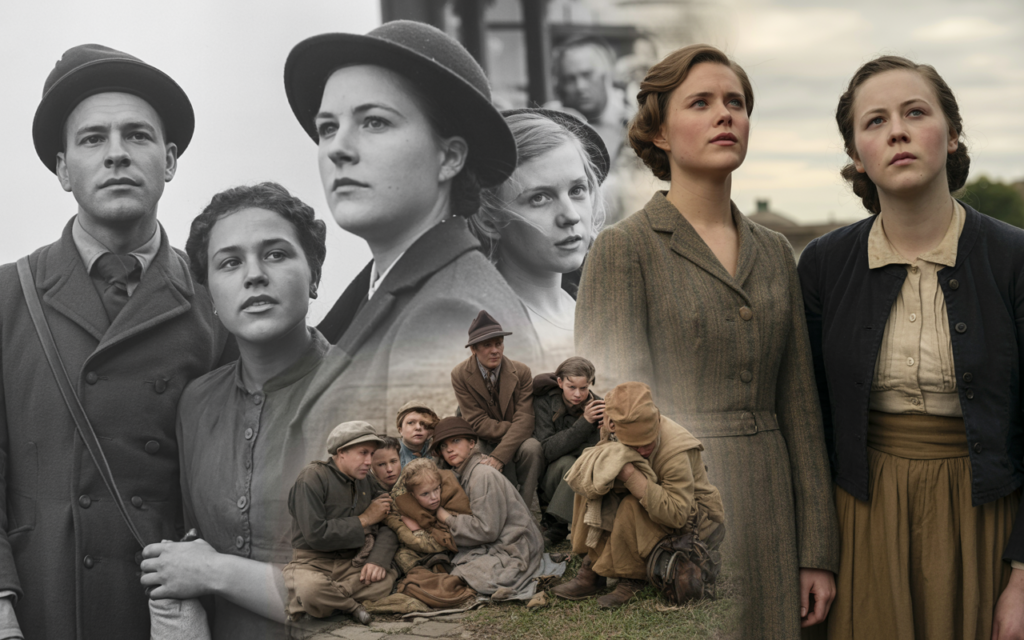
One of the most remarkable aspects of the song is its universal appeal. Despite being written by a Union bandmaster, it was embraced by soldiers and civilians on both the Union and Confederate sides. The reason for this is its politically neutral tone. The lyrics are completely devoid of any mention of specific battles, causes, or sides. The song is not about victory or defeat; it is simply about the human desire for a loved one to return safely from war.
This non-specific, universal message allowed everyone to see their own “Johnny” in the song. A mother in Georgia waiting for her Confederate son and a wife in Massachusetts waiting for her Union husband could both sing the song with the exact same depth of feeling. This shared sentiment made when johnny comes marching home one of the few pieces of culture that could bridge the divide of the Civil War.
This universality has allowed the song to endure long past the 19th century. It was popular again during the Spanish-American War in 1898 and has been played and sung during every major conflict since. The “Johnny” of the song can be a soldier in any uniform, from any country, in any war. The fundamental human emotion it taps into—the longing for a loved one’s safe return—is timeless and universal. The question of when johnny comes marching home is a question that has been asked by families in every generation touched by war. The hope of the day when johnny comes marching home is a hope that transcends borders and time.
The Enduring Legacy in Popular Culture
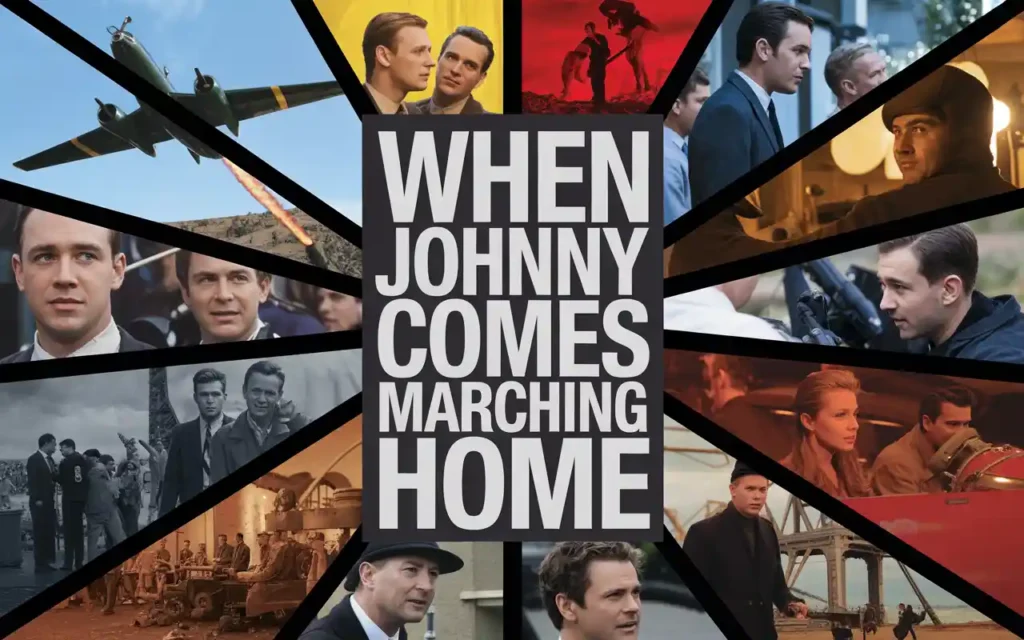
A testament to the song’s deep cultural penetration is its frequent use in film and other media, often in ways that are ironic or subversive. Film directors have used its instantly recognizable, optimistic tune to create powerful moments of contrast.
- In Stanley Kubrick’s 1964 Cold War satire Dr. Strangelove, the melody is used as a recurring theme, its cheerful optimism providing a deeply ironic counterpoint to the impending nuclear apocalypse.
- The song is used extensively in the 1995 action film Die Hard with a Vengeance. The villain, Simon Gruber, uses it as his personal anthem, its patriotic, heroic connotations twisted to serve his terrorist plot.
- It has appeared in numerous other films, from classic westerns like The Horse Soldiers to children’s movies, each time evoking a sense of American history and patriotic feeling.
These appearances have cemented the song’s place in our collective consciousness. The melody of when johnny comes marching home is instantly recognizable. The cultural footprint of when johnny comes marching home is immense. From its origins as a Civil War ballad to its use as a cinematic tool, the journey of when johnny comes marching home is a fascinating one. The legacy of when johnny comes marching home is a testament to its simple power.
Conclusion: The Timeless Hope for Homecoming

We return to the simple phrase that started it all: when johnny comes marching home. This song is a remarkable historical artifact, a piece of music that provided comfort and hope to a nation tearing itself apart. It is a masterclass in patriotic songwriting, with its universal lyrics, rousing melody, and powerful, idealized vision of a hero’s welcome.
But its true power lies in its ability to transcend its own time. It speaks to a fundamental human experience that is as relevant today as it was in 1863. It is the feeling of a family waiting for a soldier to return from deployment. It is the collective hope of a nation for an end to conflict. It is the simple, profound desire to see the people we love walk safely through the front door one more time.
The song endures because it is a vessel for our own hopes and our own anxieties. It gives voice to the quiet prayers whispered by families every day in every corner of the world touched by conflict. It is a song of profound optimism, a defiant belief in the possibility of a joyful reunion, and a timeless anthem for the day when johnny comes marching home. The simple, enduring hope contained in the phrase when johnny comes marching home is what makes it a song for all time.